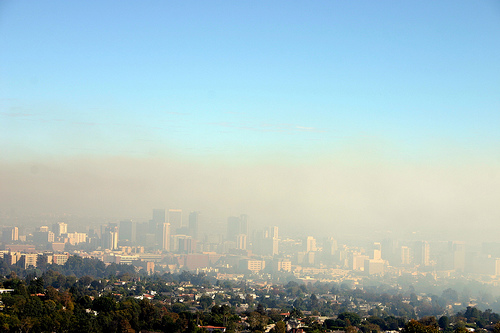 New research suggests that pollution from traffic can ‘reprogram’ genes in the womb, increasing the risk for asthma. The study is the first to link pollution to genetic changes, although researchers say that more studies are needed to confirm the findings.
New research suggests that pollution from traffic can ‘reprogram’ genes in the womb, increasing the risk for asthma. The study is the first to link pollution to genetic changes, although researchers say that more studies are needed to confirm the findings.
[social_buttons]
The study, published in PLoS ONE Journal, looked at ACSL3, a gene expressed in the lung, and its association with asthma in children at or around age 5. The mothers’ exposure (while pregnant) to polycyclic aromatic hydrocarbons (PAHs) was recorded, and the umbilical cord blood from their children was examined for the modified gene.
“Our data support the concept that environmental exposures can interact with genes during key developmental periods to trigger disease onset later in life, and that tissues are being reprogrammed to become abnormal later.” – Dr Shuk-mei Ho, study leader and director of the Center for Environmental Genetics at the University of Cincinnati.
Researchers found a significant association between high levels of maternal PAH exposure and the chemical changes which control activation of the ACSL3 gene.
“We know that children living in polluted areas have a higher incidence of asthma but what we didn’t know was it was affecting a gene.” – Dr Keith Prowse, VP, British Lung Foundation
Early detection of the modified gene may help to prevent asthma, which strikes as many as 25% of children in high traffic pollution areas.
“We don’t yet know whether air pollution can actually cause asthma and although this study is very interesting, further research is needed before we can say for sure. We do know however that pollution triggers symptoms in two thirds of people with asthma, and many say that a reduction in air pollution would make the single biggest difference to their quality of life.” – Dr Elaine Vickers, Asthma UK
[Via BBC]
Image: oxyboricua at Flickr under Creative Commons
Leave a Reply